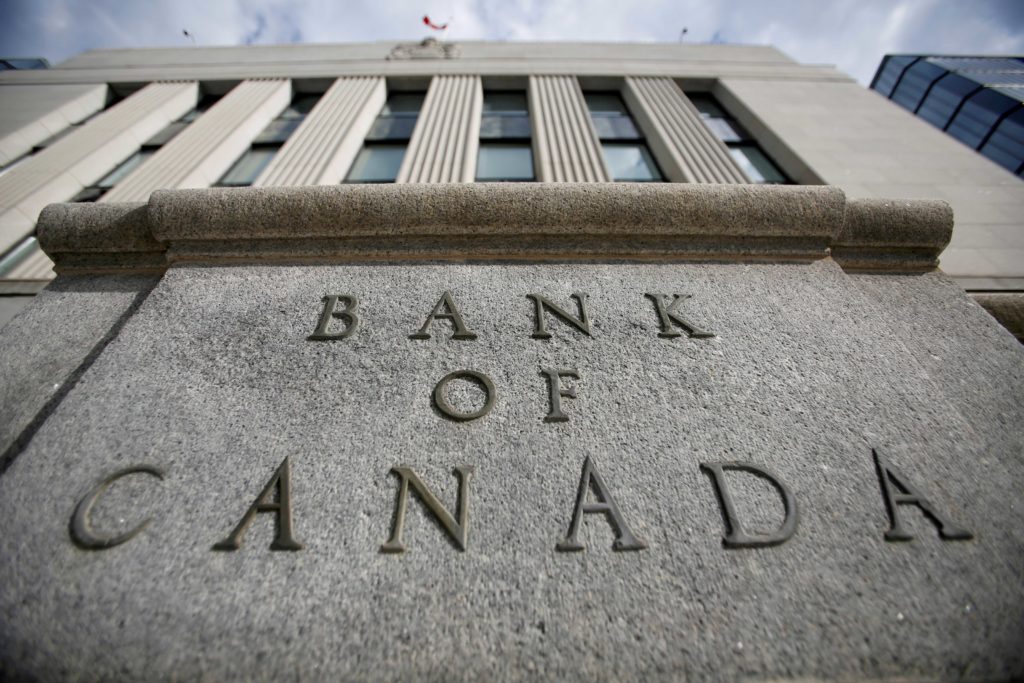Canadian annual inflation rate doubles as central bank sees faster growth

A sign is pictured outside the Bank of Canada building in Ottawa, Ontario, Canada, May 23, 2017. REUTERS/Chris Wattie
OTTAWA – Canada’s annual inflation rate doubled to 2.2% in March, Statistics Canada said on Wednesday, as the central bank signaled economic slack would likely be absorbed earlier than it had previously forecast.
Previously, the Bank of Canada had said it would be 2023 before inflation returned sustainably to its 2% target. On Tuesday, the central bank said it would happen in the second half of next year. In the meantime, inflation would temporarily breach its target, the bank said.
Part of the March price bounce is due to a statistical effect caused by a sharp deceleration last year during the coronavirus pandemic, Statscan said.
The bank also held its key overnight interest rate at a record low 0.25% as expected.
Analysts polled by Reuters had expected the annual rate to rise to 2.3% in March, up from 1.1% in February. Energy prices gained 19.1% on a year-on-year basis, while inflation excluding gasoline and food rose 0.9% versus a year ago.
“The headline spike, as expected, is largely an energy story, but there are some signs that underlying pressures are starting to show up,” said Nathan Janzen, senior economist at the Royal Bank of Canada.
“The Bank of Canada’s core measures also moved higher on the month, with two of them very slightly above the Bank of Canada’s midpoint 2% inflation target,” Janzen said.
CPI common, which the central bank calls the best gauge of the economy’s underperformance, was 1.5%, slightly higher than the 1.4% forecast by analysts.
CPI median rose to 2.1% from 2.0% in February, and CPI trim was 2.2% in March, up from a revised 2.0% in the previous month.
But Derek Holt, vice president of capital markets economics at Scotiabank, said the annual rate is not being driven solely by a statistical effect.
“This isn’t just base effect-driven, it’s pretty remarkable resilience in terms of underlying inflation pressures,” he said.
The bank now expects Canada’s economy will grow 6.5% in 2021, up from its January forecast of 4.0%, with real GDP growth of 3.7% in 2022, down from a previous forecast of 4.8%.
After the Bank of Canada announcement, the Canadian dollar strengthened 0.9% to 1.2499 to the greenback, or 80.01 U.S. cents, its biggest gain since last June.

